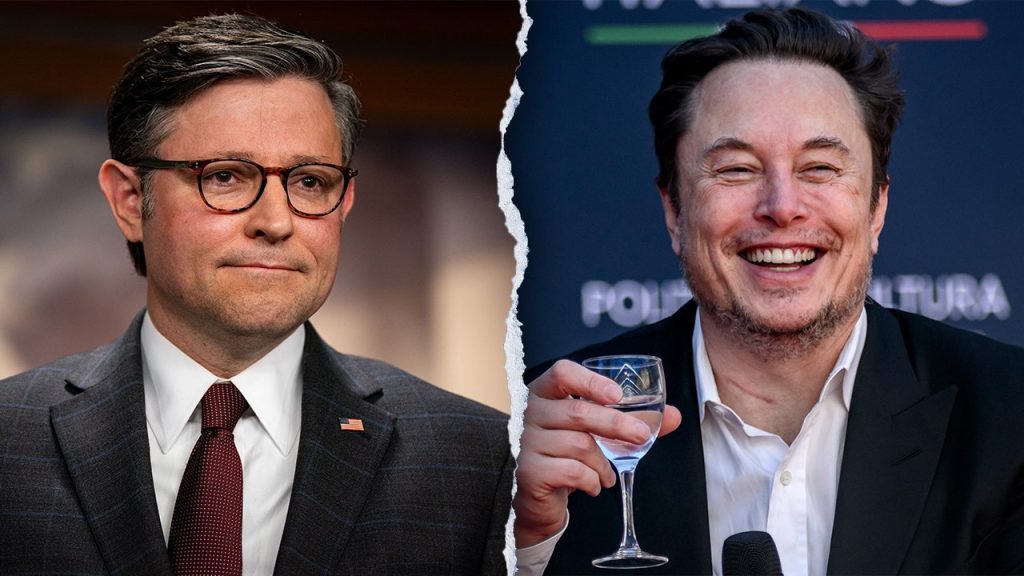The recent intervention of Elon Musk and Vivek Ramaswamy in congressional negotiations regarding government funding has sparked considerable controversy and internal dissent among House Republicans. Their eleventh-hour involvement in efforts to derail a bipartisan continuing resolution (CR) designed to avert a government shutdown has drawn sharp criticism from several GOP lawmakers who view their actions as disruptive and self-serving. These critics argue that Musk and Ramaswamy, motivated more by personal publicity than legislative progress, exacerbated existing tensions within the House Republican Conference and undermined Speaker Mike Johnson’s leadership.
The bipartisan CR, a 1,547-page document, aimed to extend current government funding levels through March 14, 2024, providing negotiators more time to formulate a comprehensive funding agreement for the remainder of fiscal year 2025. This strategic move also intended to postpone the contentious budget battle until a period when Republicans hold control of the House, Senate, and White House. However, the CR also included provisions addressing healthcare, ethanol fuel, disaster aid exceeding $100 billion, funding for infrastructure projects, and a pay raise for lawmakers, elements that drew strong opposition from hardline Republicans.
Musk and Ramaswamy quickly amplified this opposition, publicly denouncing the CR and leveraging their substantial social media influence to pressure Republican lawmakers. Musk’s threat to back primary challengers against Republicans who supported the CR added a significant layer of political pressure. This rapid escalation of events, less than 24 hours after the CR’s unveiling, led to House Majority Leader Steve Scalise declaring the bill dead, leaving House GOP leadership scrambling for an alternative solution with uncertain prospects of bipartisan support.
Several House Republicans, speaking anonymously to express their candid views on the sensitive situation, voiced their frustrations with Musk and Ramaswamy’s intervention. Some criticized their lack of direct communication with Speaker Johnson, emphasizing that collaboration and internal discussion should precede public pronouncements. Others accused Ramaswamy of disseminating misinformation about the CR’s contents, highlighting his alleged failure to fully comprehend the document’s provisions. A particularly strong sentiment expressed was that Musk and Ramaswamy’s actions, driven by a desire for attention and clicks rather than genuine concern for the legislative process, ultimately undermined Speaker Johnson’s authority and damaged the Republican Party’s image.
The involvement of former President Trump further complicated the already tense negotiations surrounding the government funding and debt ceiling. Trump’s threat to primary Republicans who supported a “clean” CR, devoid of a debt limit increase—a mechanism set to expire in January 2025—intensified the pressure on GOP lawmakers. This tactic was met with resentment from some Republicans, who interpreted his threat as a divisive maneuver that weakened his standing within the party.
The convergence of these factors—Musk and Ramaswamy’s public pressure, internal GOP divisions, and Trump’s intervention—created a highly volatile and unpredictable legislative environment. The collapse of the bipartisan CR, intended as a temporary measure to avert a government shutdown, underscores the challenges facing House Republican leadership in navigating the competing demands within their party while seeking to address critical fiscal matters. The incident serves as a stark illustration of the potential for external influences and internal fractures to derail legislative efforts and create uncertainty about the government’s ability to function effectively. It also raises questions about the appropriate role of non-elected individuals in influencing the delicate process of congressional negotiations and the potential consequences of prioritizing partisan interests over bipartisan solutions.

